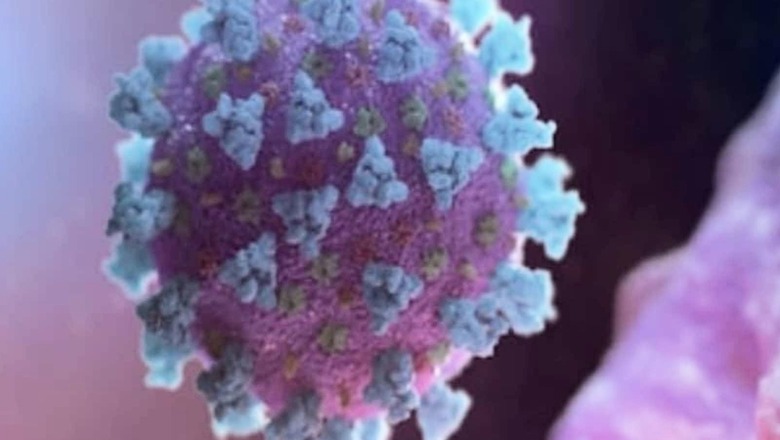
views
A new study on the emergence of new Covid-19 variants has shown that Sars-CoV-2 virus mutates inside the infected patient’s body and then infects other individuals carrying the changes with it.
The research published on preprint server MedRxiv on July 27 studied samples in two time periods during the pandemic. The study found 80 per cent of the genomes sequenced in individuals had later emerged as new variants or strains, according to a report by the Times of India.
The study participated by researchers from Hyderabad based Centre for Cellular and Molecular Biology (CCMB), Institute of Genomics and Integrative Biology (CSIR-IGIB), Delhi, Institute of Life Sciences, Bhubaneswar, Academy for Scientific and Innovative Research, Ghaziabad, National Centre for Disease Control, New Delhi, and Indian Institute of Technology, Jodhpur. The study indicates that future tracking the virus changes within-host variability in individuals and population might help in identifying sites that are favourable or harmful.
“This information would be of enormous utility for predicting the spread and infectivity of viral strains in the population. Conjoint analysis with the intra-host variability of the novel coronavirus genome should be the next step,” the study said.
In phase 1, researchers analysed 1,347 samples collected from China, Germany, Malaysia, UK, US and different regions in India to perceive a “genome-wide intra-host single nucleotide variation (iSNV) map” in patients. A single-nucleotide variant (SNV) is a variation in a single nucleotide for another.
“Interestingly, 41% of all unique iSNVs identified in these samples were found to be reported as an single nucleotide variation or SNV by September 30, 2020 in one or more samples submitted in GISAID, increasing to about 80% by June 30, 2021. The likelihood that iSNVs can overtime manifest into SNVs in populations was further substantiated in phase 2 by analysing 1,798 samples sequenced in India between November 2020 and May 2021,” the researchers told.
The study found iSNVs in virus variant Delta (B.1.617.2) and Kappa (B.1.617.1) having uniquie genomic positions prior to their fixation as SNVs by February 2021. “These results highlight the importance of recording iSNVs as an extension to the genomic surveillance programs to enable more accurate models for viral epidemiology,” they said.
Read all the Latest News, Breaking News and Coronavirus News here.















Comments
0 comment